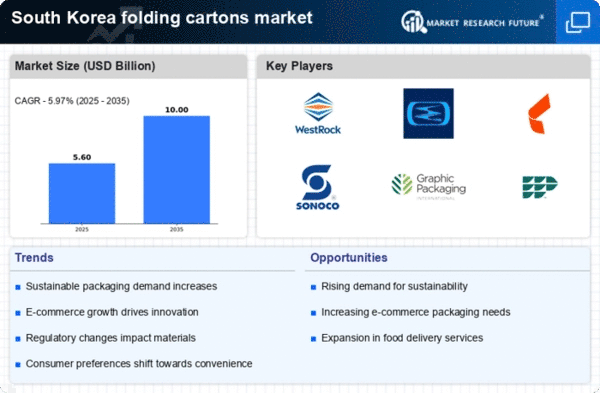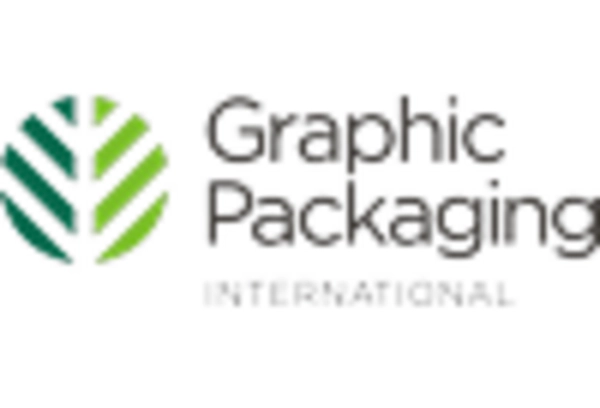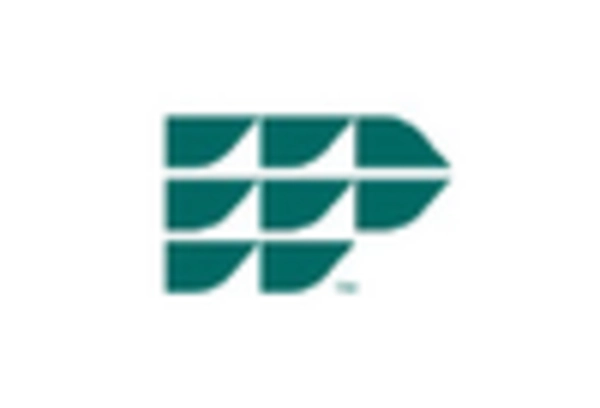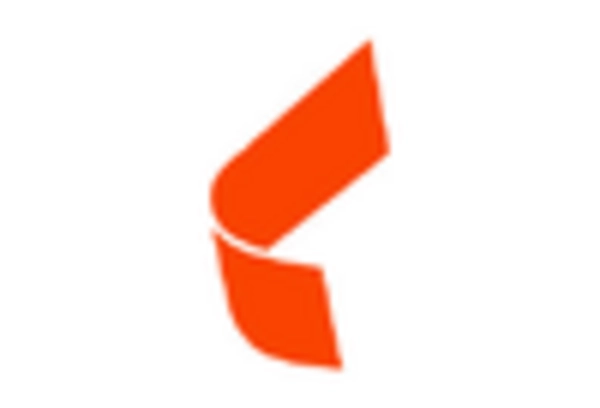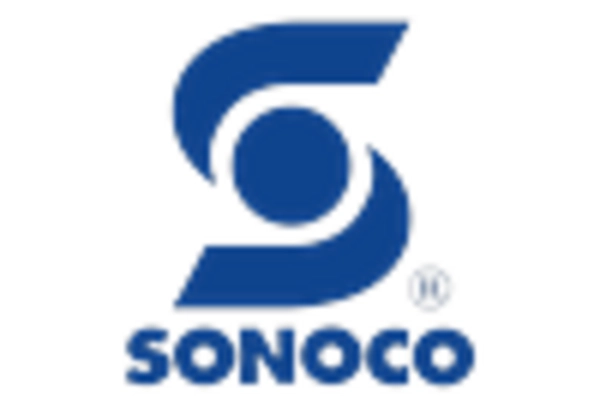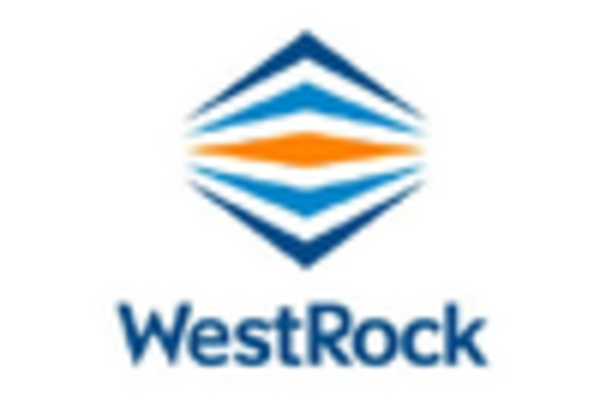Growth of the Food and Beverage Sector
The food and beverage sector in South Korea significantly influences the folding cartons market. With a growing population and changing dietary habits, the demand for packaged food products is on the rise. In 2025, the food and beverage industry is projected to contribute around 40% to the overall folding cartons market. This growth is driven by the increasing consumption of ready-to-eat meals and convenience foods, which require effective packaging solutions. Folding cartons provide an ideal option for branding and preserving product freshness, making them a preferred choice among manufacturers. The folding cartons market is thus poised for expansion, fueled by the evolving dynamics of consumer preferences in the food sector.
Technological Innovations in Packaging
Technological advancements play a crucial role in shaping the folding cartons market in South Korea. Innovations in printing, design, and production processes enhance the efficiency and appeal of folding cartons. For instance, the integration of digital printing technology allows for customized packaging solutions that cater to specific consumer needs. In 2025, it is anticipated that approximately 25% of the folding cartons market will be driven by these technological innovations. Furthermore, automation in production lines improves operational efficiency, reducing costs and lead times. As a result, the folding cartons market is likely to benefit from these advancements, enabling companies to offer more competitive and attractive packaging options.
Rising Demand for Eco-Friendly Packaging
The folding cartons market in South Korea experiences a notable increase in demand for eco-friendly packaging solutions. As consumers become more environmentally conscious, brands are compelled to adopt sustainable practices. This shift is reflected in the market, where the use of recyclable and biodegradable materials is gaining traction. In 2025, it is estimated that eco-friendly packaging could account for approximately 30% of the total folding cartons market. Companies are investing in innovative materials and production processes to meet this demand, which not only enhances their brand image but also aligns with regulatory pressures for sustainability. The folding cartons market is thus witnessing a transformation driven by consumer preferences and environmental regulations.
Regulatory Compliance and Safety Standards
Regulatory compliance and safety standards are pivotal in the folding cartons market in South Korea. The government enforces stringent regulations regarding packaging materials and safety, which manufacturers must adhere to. In 2025, it is projected that compliance with these regulations will drive approximately 20% of the folding cartons market. Companies are investing in research and development to ensure their products meet safety standards while also being environmentally friendly. This focus on compliance not only protects consumers but also enhances brand reputation. The folding cartons market is thus navigating a complex landscape of regulations, which ultimately shapes product offerings and market dynamics.
Increase in Retail and E-commerce Activities
The rise of retail and e-commerce activities in South Korea significantly impacts the folding cartons market. As online shopping continues to gain popularity, the demand for efficient and visually appealing packaging solutions increases. In 2025, e-commerce is expected to account for nearly 35% of the total retail sales, driving the need for folding cartons that can withstand shipping and handling while maintaining product integrity. Retailers are increasingly focusing on packaging that enhances the unboxing experience, which is crucial for customer satisfaction. Consequently, the folding cartons market is adapting to these trends, with manufacturers developing packaging that meets the specific requirements of e-commerce logistics.


